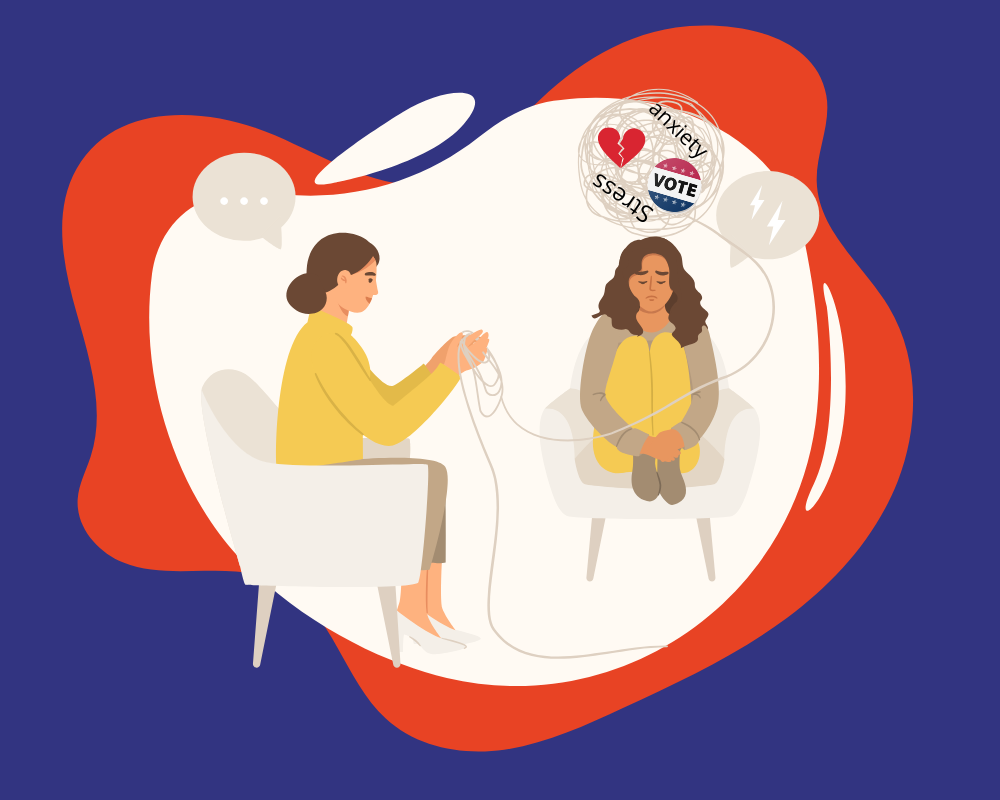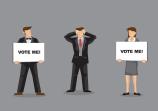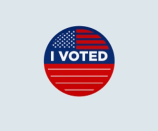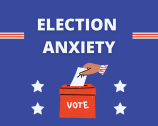Managing Mental Health and Relationships in an Election Year
Managing Mental Health and Relationships in an Election Year

As therapists, we often find ourselves guiding our patients through a whirlpool of uncertainty about their fears. We ask them to sit with the possibility that their worst fears could come true. We do this with the hope that by facing their fears, we can help them to become more comfortable with uncertainty, manage their emotions better, and improve their overall quality of life. What we don’t often think about is how stress and anxiety can significantly increase during an election year and affect everyone’s mental health.
The impact of stress on mental health in an election year
During the 2016 election, the American Psychological Association conducted a poll where 52% of adults reported that the election was a “very or somewhat significant source of stress” regardless of political affiliation. This stress was heightened by media overload leading to political division, feeling a lack of control over the outcome, and as mentioned earlier, pure uncertainty.
The increase of stress and uncertainty during an election year can affect a person’s quality of life and ability to perform daily activities, potentially resulting in:
- Anxiety / OCD – This could look like increased thoughts about potential outcomes which can lead to rumination and panic, excessive reassurance seeking from those who share the same concerns, and increased researching of polls and data that debunk or even validate the fear, all to create a false sense of certainty or control over the outcome of the election.
- Depression – Whether after a debate, a new statistical poll, or even a heated discussion with family members, election stress can increase feelings of low mood, avoidance, and isolation. For example, an individual may try to avoid family members, friends, and become distant from significant others due to divided beliefs or constant disagreements.
- Physical symptoms – When mental health symptoms increase, our physical health is often affected as well. A person may experience an increase of headaches, fatigue, and digestive problems. Other symptoms may include sleep disturbances, such as insomnia and oversleeping.
- Substance use – The heightened anxiety and tension can cause people to use substances, including alcohol, drugs, and even food, to cope. This can be a form of escapism and self-medication.
- Impact in academic or job performance – Election year stress can lead to increased absenteeism and preoccupation, which can affect concentration and impaired decision making.
5 ways to discuss politics in a healthy way
Engaging in political discussions in a healthy way is essential for maintaining respectful and productive conversations. Here are five strategies to help you navigate these discussions:
1. Listen actively
- Understand, don’t argue: Focus on understanding the other person’s perspective rather than trying to change their mind.
- Show empathy: Acknowledge another person’s feelings and viewpoints, even if you disagree.
2. Set clear intentions
- Know your goals: Before starting a conversation, be clear about what you hope to achieve. Aim for understanding and finding common ground rather than winning an argument.
- Stay open-minded: Be willing to consider new information and perspectives.
3. Practice respectful communication
- Avoid personal attacks: Focus on the issues, not the person. Avoid name-calling or making derogatory remarks.
- Use “I” statements: Express your views using “I” statements to avoid sounding accusatory (e.g., “I feel that…” instead of “You always…”).
4. Find common ground
- Shared values: Identify and emphasize shared values or goals, such as a desire for a better community or country.
- Agree to Disagree: Recognize that it’s okay to have different opinions and that mutual respect is more important than agreement.
5. Manage emotions
- Stay calm: If the conversation becomes heated, take a break to cool down before continuing.
Managing mental health symptoms during an election year
The most important way to maintain mental health during an election year is to learn how to create balance, maintain healthy boundaries, and slowly increase tolerance of the uncertainty regarding the election. In addition, individuals can also adopt the following strategies:
Practice mindfulness daily – This can be any activity that allows us to become more present and stay in the here-and-now. Activities can include meditation, mindful movement, mindful awareness, and gratitude/self-compassion journaling.
Engage in self-care – Regular exercise, healthy eating, and sleep hygiene can support both physical and mental well-being.
Create healthy boundaries – Politely set boundaries about political subjects that can increase vulnerability to negative emotions and mental health symptoms. Instead, concentrate on the actions that you can take, such as your own vote.
Stay connected – Avoidance and isolation are easy ways to avoid political arguments and turmoil. However, they also lead to loneliness and disconnection from the world. It’s important for individuals to continue to engage in their hobbies and maintain healthy emotional connections.
While feeling stressed during an election year is normal, it’s important to proactively take steps to manage it so you can maintain your overall well-being.
Mental health services help at Rogers
If you or a loved one are struggling with mental health or addiction, Rogers is here to help. We offer multiple levels of treatment options across the country, including inpatient, residential, and telehealth for children, teens, and adults. To get started, call 800-767-4411 for a free, confidential screening.
This blog was written by Rogers Behavioral Health, an ADAA partner.




















